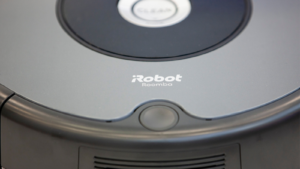With the recent global stock market rout fueled by sudden weakness in artificial intelligence companies, it’s an ideal time to consider offloading overhyped AI stocks.
Few expected such a massive tumble at the stock market, but denying how overheated AI stocks had become is tough. AI has been the biggest investing theme over the past few years, driving the stock market to record gains. Yet, many on Wall Street predicted a major correction in AI stocks, with investors demanding tangible AI-driven operational improvements.
Consequently, the Magnificent Seven stocks took a huge hit, wiping out nearly $3 trillion in market value. Moreover, the risks are even greater for investors holding AI stocks with massive or overhyped operating losses. With the possibility of a broader market correction, these overvalued stocks could see major declines.
With that in mind, it’s best to prune your portfolio from these high-risk assets AI stocks to sell, offering little upside ahead.
Snap (SNAP)
Snap (NYSE:SNAP), which operates the Snapchat social media platform, was once a thriving player in the tech space, enjoying its heyday when competition was scarce. However, the social media player has been up against stiff competition with the rise of TikTok and industry titans like Meta Platforms (NASDAQ:META) dominating the space.
Over the past year, Snap’s advertising business has taken a sizeable hit, leading to a significant drop in its top-and-bottom-lines. Additionally, SNAP stock has been down more than 88% in the past three years, including a drop of 47% so far in 2024. Amidst the struggle, it is making major investments in AI and augmented reality.
The firm’s second-quarter results painted an unattractive picture of its advertising business, triggering a decline in its stock price. While its management was quick to blame the market conditions, the lackluster performance is linked to company-specific issues. Advertising sales were up roughly 10% from a year ago, which pales compared to its peers. Moreover, this underwhelming growth comes when some economic indicators point to a recession, which could weigh down ad spending further.
iRobot (IRBT)

iRobot (NASDAQ:IRBT) established a bellwether position in the AI-powered home robotics space. Despite the early burst of excitement surrounding the stock, IRBT shed much value on the back of its dwindling fundamental performance. Moreover, following its stock, it is now trading at a fraction of Amazon’s (NASDAQ:AMZN) takeover offer following the deal’s collapse earlier this year due to EU regulatory scrutiny.
The fallout has been severe, with iRobot laying off more than 30% of its workforce, underscoring deeper operational challenges. As a stand-alone entity, there’s little to get excited about with iRobot, with sales and profit margins consistently in the red over the past several years.
Despite restructuring efforts, the firm remains in a precarious situation, with its cash position dropping 78% from 2021 to $108.5 million as per its latest quarterly update. Moreover, the intense competition and eroding market share in the robotic vacuum space aggravate the company’s bleak outlook.
BigBear.ai (BBAI)

BigBear.ai (NYSE:BBAI)is up against major challenges in the AI sector, with its stock expected to drop further. Despite offering various AI-driven analytics solutions, the company’s financials have taken a turn for the worse.
In its most recent quarterly report, BigBear.ai just a 3.4% increase in sales from a year ago, missing estimates of $6.75 million. Moreover the company missed estimates on its top-line for the fifth consecutive quarter. Additionally, it missed bottom-line estimates in three out of the past five quarters.
Strategically, BigBear.ai struggled to hold its own against fierce competition from well-established AI giants and agile startups. Additionally, by acquiring Pangiam Intermediate, BigBear.ai aims to stand out in terms of visual AI and biometrics capabilities.
However, these efforts have yet to translate into financial performance. Moreover, its aggressive acquisition strategy has added to its massive debt burden, heightening concerns about dilution. It has a $195 million in long-term debt and just $72 million in cash.
On the date of publication, Muslim Farooque did not have (either directly or indirectly) any positions in the securities mentioned in this article. The opinions expressed in this article are those of the writer, subject to the InvestorPlace.com Publishing Guidelines.
On the date of publication, the responsible editor did not have (either directly or indirectly) any positions in the securities mentioned in this article.
